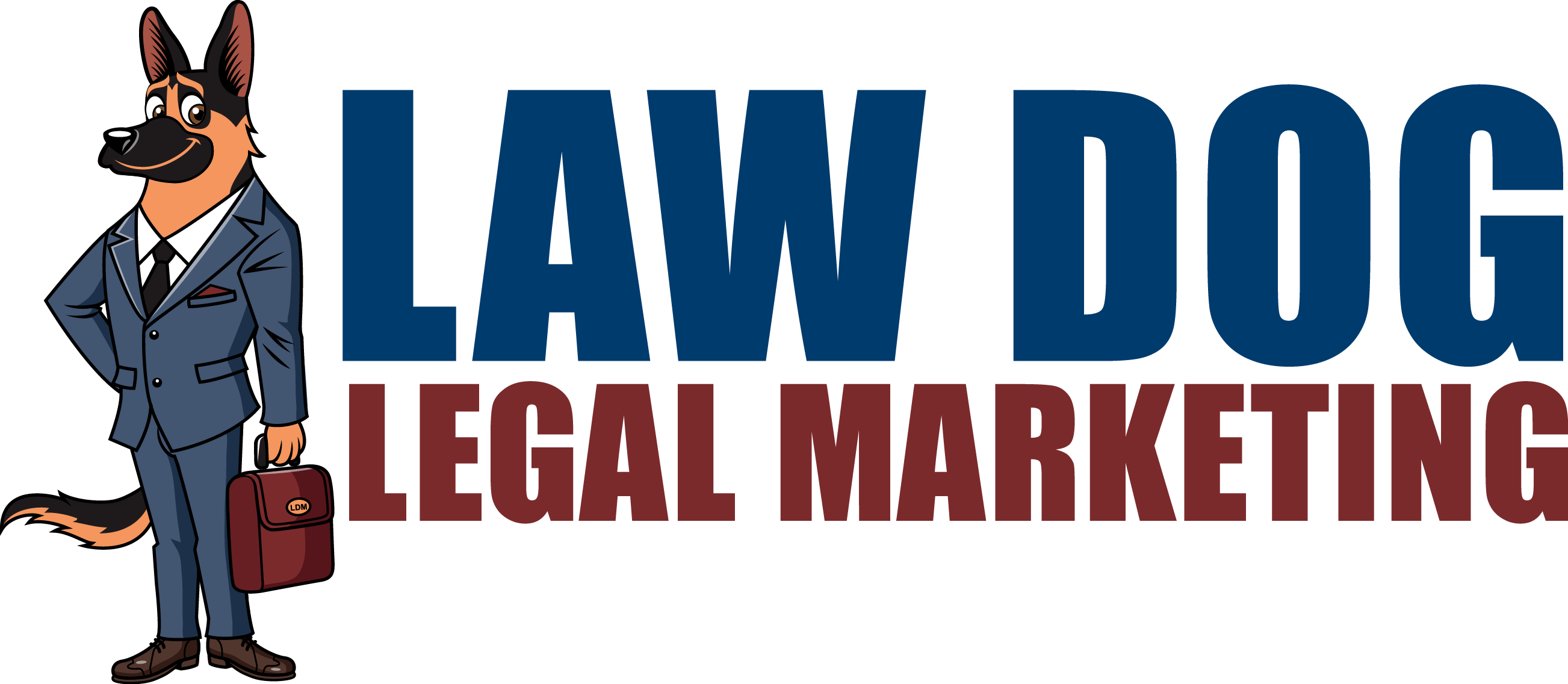Google searches yield a number of Florida personal injury lawyers advertising their availability for dog bite cases.
Considering various statistics on dog ownership and bites, you might consider as potential clients victims of dog attacks. According to Forbes magazine, dog-owning households in the United States number 65.1 million. By one study, nearly two out of every five households in Florida own at least one dog. While that percentage ranks only 24 out of 48 states, Florida stands third in population among the states, with an estimated 22.2 million residents.
Floridians or those visiting Florida face appreciable risks of being in dog attacks. Dog bites in the state on average send 600 victims to the hospital each year. The United States Postal Service reports that, in 2022, Florida had the seventh highest number (among states) of dog bite incidents involving postal carriers at 220. Miami’s 21 occurrences ranked 15th among all cities, while Jacksonville came in at 20th with 16 bite incidents. Dog bites in Miami rose by 11 percent in the first six months of 2023.
Personal Injuries From Dog Attacks:
Dog bites cause cuts, scars, disfigurement, fractures, bruises, infections, and pain. Many musculoskeletal injuries arise from falls caused by the bites, physical contact by the dogs, and attack victims tripping or slipping while fleeing from the dog. Attacks by unvaccinated dogs expose victims to possible rabies.
Annually, two people die from dog bites. In 2022, four pit bulls attacked and killed Pam Rock while she was delivering mail in Putnam County, Florida.
Dog Bite Law in Florida:
Under Florida law, dog owners face strict liability for damages their dogs inflict upon those in public places or where the victim had a right to be at the time of the attack. This includes victims visiting a home at the request, invitation, or consent of the property owner. The strict liability rule removes the need of the bite victim to prove the owner’s negligence or knowledge of the dog’s dangerous propensities. Further, owners do not get a “free bite” before liability attaches.
Why Dog Bite Cases May Not Prove Worthwhile For Your Practice:
Ironically, the reasons that make dog bite cases relatively straightforward for liability also make them potentially not worthwhile for your practice. The strict liability nature of Florida dog bite law and the prevalence of dog bite incidents may expose insurers to significant risks and exposure they seem unwilling to assume. As attorneys, you realize that your clients need more from the courts than a declaration that someone harmed your clients. Proving liability does little for your clients if they cannot or do not see compensation for their injuries.
A Primer on Attorney Fees in Personal Injury Cases:
Personal Injury lawyers take accident, slip and fall, and other injury claims on a contingent fee basis. In this arrangement, you charge and receive a percentage of what your client recovers from a lawsuit or settlement. The portion you take as your fee may depend on whether you lawyer settle without a lawsuit or have to file one.
Looking to the dog owner’s assets may resemble searching through an empty well or empty wallet. Florida law provides a homestead exemption that protects a primary residence from being sold to pay on a judgment. Collecting against uninsured defendants involves time and expense to discover non-exempt assets such as vacation or other second homes. Often, dog owners and other individual defendants may themselves be judgment-proof. This means that lawyers likely will not take contingency fee cases unless the tortfeasor is a business with plenty of assets or there exists insurance to pay the claims.
In car accident cases, injured parties resort first to personal Injury protection coverage on the vehicle in which they drive. Florida law requires drivers to have this coverage (up to $10,000) to pay their medical expenses and lost wages on a no-fault basis. That means your clients can recover up to $10,000 for their personal injuries regardless of which party was negligent in causing the wreck. Beyond the $10,000, your clients may sue the at-fault driver if that driver has liability coverage. Note that most passenger vehicle drivers in Florida are not required to have liability coverage.
Personal injury lawyers also look for insurance in premises liability cases. Typical claims include slips and falls caused by faulty steps, rotten floors, insecure railings, or slippery or foreign substances on the floor. Retail stores, offices, and other commercial establishment owners carry commercial liability insurance to defend and pay claims.
Homeowners Insurance:
Unsafe conditions can also occur in residences. Homeowners insurance policies include coverage for liability claims along with the owners’ claims for damages to the structure or contents.
According to the Insurance Information Institute, Florida trailed only California in two metrics involving dog-related homeowners liability claims. Insurers in Florida fielded 1,331 dog bite liability claims in 2022. California had 1,954 claims. In Florida, the average claim cost $78,203 in 2022. On average, claims in California carried a price tag of $78,818. By one report, nearly one in every three homeowners insurance claims arise from dog bites.
These statistics suggest attorneys in Florida could find compensation for clients from homeowners policies. However, injured parties and their attorneys face potential coverage obstacles.
Exclusions for Certain Breeds:
A number of homeowners insurance companies will not cover liability claims for bites by certain breeds. These “dangerous dogs” include pit bulls, German Shepherds, Rottweilers, Doberman Pinchers, Chow Chows, and Great Danes. In fact, a Forbes magazine article stated that all insurers surveyed excluded Doberman Pinchers, pit bulls, and Rottweilers.
On a national basis, three out of every four bites come at the hands of pit bulls, Rottweilers, and German Shepherds. Pit bulls by themselves account for an estimated half of dog bites in the United States and half of all fatalities from dog bites.
Even when insurance does not exclude the breed, coverage may comes with conditions. For instance, insurers may cover only one bite by a dog. Owners may have higher premiums or need special policy endorsements for certain dogs. Even dogs with breeds not considered dangerous, homeowner insurers may decline coverage for dogs with a history of attacks.
Possible Insurance for Owners of Dangerous Dogs:
At present, Florida law does not mandate liability insurance as a condition of owning a dog. However, the Florida legislature is considering the “Pam Rock Act,” which would include a requirement that owners of “dangerous dogs” carry $100,000.00 in dog liability insurance. The proposed law defines “dangerous dogs” as those who have done any of the following:
- Seriously injured another person
- “Aggressively” attacked or placed others in danger
- At least twice killed or injured livestock and other domesticated animals off of the owner’s premises
- Chased people or animals in menacing manner
- Attacked without being provoked
If You’re Consider Taking a Dog Bite Case:
When a dog-bite victim seeks coverage, you need to determine if the homeowner’s insurance will cover the attack. This starts with identifying the owner of the property where the bite or other attack occurred and whether the same party or set of parties owns the dog. Depending on the policy, exclusions against breeds may not apply if someone other than the homeowner is the offending dog’s owner.
Yes, you might write the homeowner to request a copy of the policy. However, the homeowner or dog owner has no obligation to furnish it to you in the absence of a lawsuit. If you file a lawsuit, discovery processes such as interrogatories and requests for production of documents would afford you access to the homeowner’s policies. However, you and your client risk learning that no insurance is available to cover your damages.
As a possible hedge against no insurance, perform an asset check of the dog owner or homeowner where the attack occurred. You might find through public records searches assets such as vacation homes, second homes, or interests in corporations or limited liability companies registered in Florida. In pretrial discovery, ask for a listing of vehicles and other assets that could help pay your dog bite claims.


